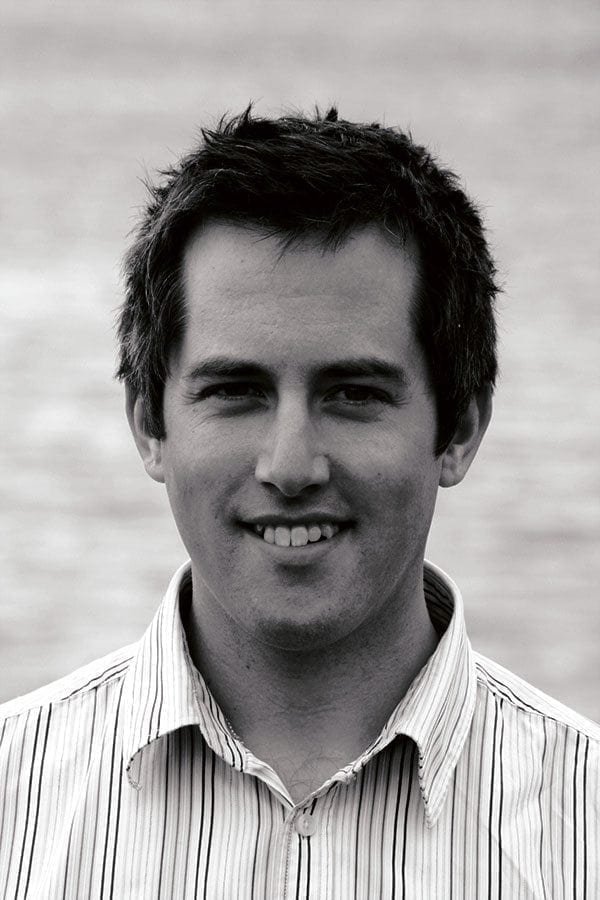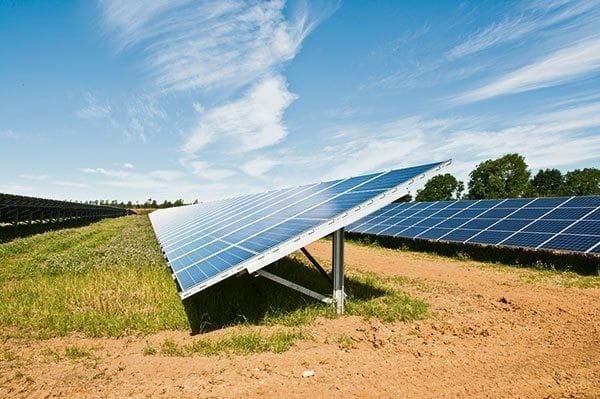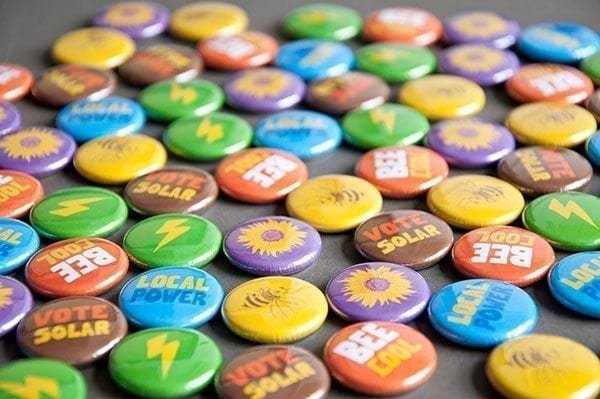Gawcott Field’s Badges
TRANSFORMING COMMUNITIES
To date, CfR – a community interest company (CIC) – has worked with over 20 local energy enterprises as well as councils and social landlords. Over the last 18 months alone CfR has helped deliver over £25m of community energy installations. ‘Our work ranges from helping a new local energy enterprise to get set up and develop its business plan to helping a project to get financed and built’, Jake tells us.
Since 2014, CfR has also worked with the award-winning Plymouth Energy Community to help set up a local energy generation enterprise, which has raised over £2m in community share investment and £4.5m in long-term debt finance. The money has funded solar panel installations on the roofs of over 30 schools and community buildings in the city and a 4.1MW community solar farm on a brownfield site. The solar panels help reduce energy bills and earn a return for people who have invested in the community share offer, while the surplus income generated supports work to help get people out of energy debt and green Plymouth’s energy supply.
CfR has just completed the community purchase and financing of the largest community solar project in the UK to date, at Wick Farm in Somerset. The 9.3MW solar farm will be run for the benefit of the local community and, over the next six months, CfR will involve local organisations and launch a community investment offer.
GAWCOTT FIELDS BOND OFFER
One investment opportunity that’s already up and running is the Gawcott Fields Community Solar project, a 4.2MW solar farm between Buckingham and the village of Gawcott. The olar farm was commissioned in June 2016 and has been generating energy and income from the sun since then. It’s made up of 16,000 solar panels and is expected to generate around 4m kWh of electricity each year – equivalent to the annual consumption of around 1,000 homes.
The solar farm benefits from a 20-year inflation linked Feed-in Tariff (FiT) that was secured before the cuts last year. ‘We’re hoping to raise £1.125m through the Gawcott Fields community bond offer, with the remainder of the money coming from a 15-year bank loan for which we have an offer of just over £3m from Santander’, Jake tells us. ‘The money will be used to repay the development and construction costs of the solar farm, which have so far been funded by the landowner and the construction contractor.’
People and organisations can invest any amount from £250 upwards and, while adults from any region can invest, in the event of over-subscription priority will be given to those from the local area. The 20-year bond offers an annual interest of 6% with some built-in inflation protection, too: the bond interest increases by 0.5% for each 1% rise in inflation above 3%. Bond investors get their capital retuned by year 20, with capital repaid out of revenue reserves rather than being dependent on further financing.
COMMUNITY BENEFITS
‘Buckingham and the surrounding parishes spend around £20m per year on energy’, Jake tells us, ‘almost all of which leaves the local economy. The Gawcott Fields Community Solar project is a step towards reducing and localising that energy spend, and making energy a benefit to – rather than a drain on – the local economy.’
Surplus income generated after operating costs, bank loan costs and payments to bond holders will be used to support community projects in the local area. The community surplus is expected to be around £10,000 per year for the first three years, and a total of around £2m over the 30-year life of the project.
 Play Video about This Rock Might Just Save The World
Play Video about This Rock Might Just Save The World Play Video about Play 2 hours of rock
Play Video about Play 2 hours of rock Play Video about Play 2 hours of brook
Play Video about Play 2 hours of brook Play Video about Play 2 hours of sheep
Play Video about Play 2 hours of sheep














































